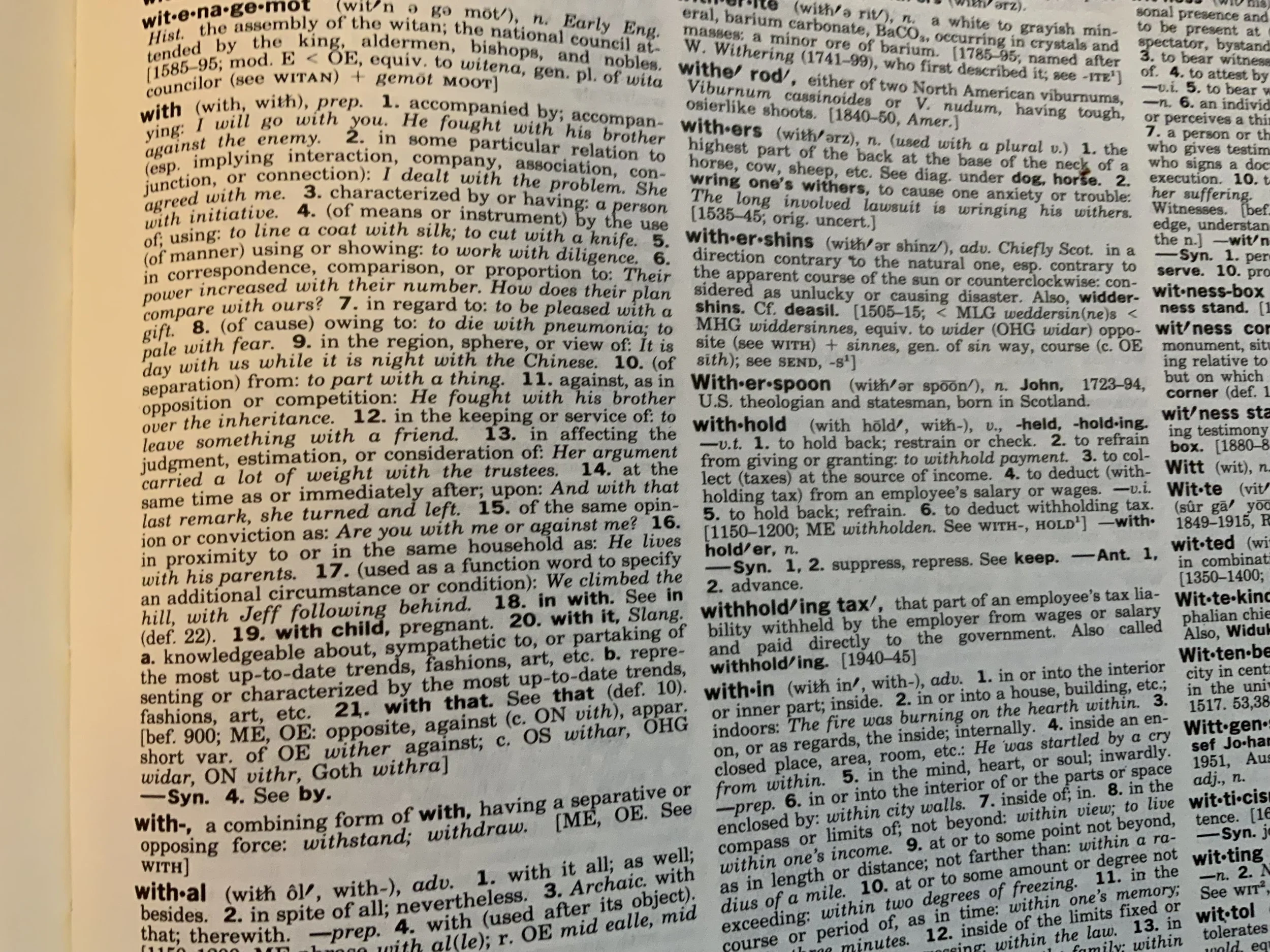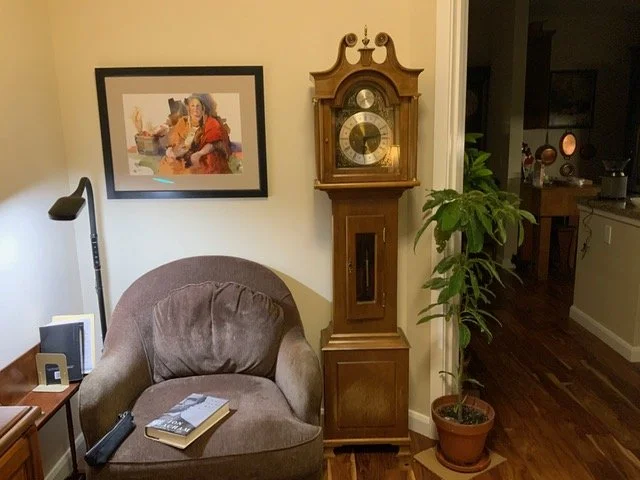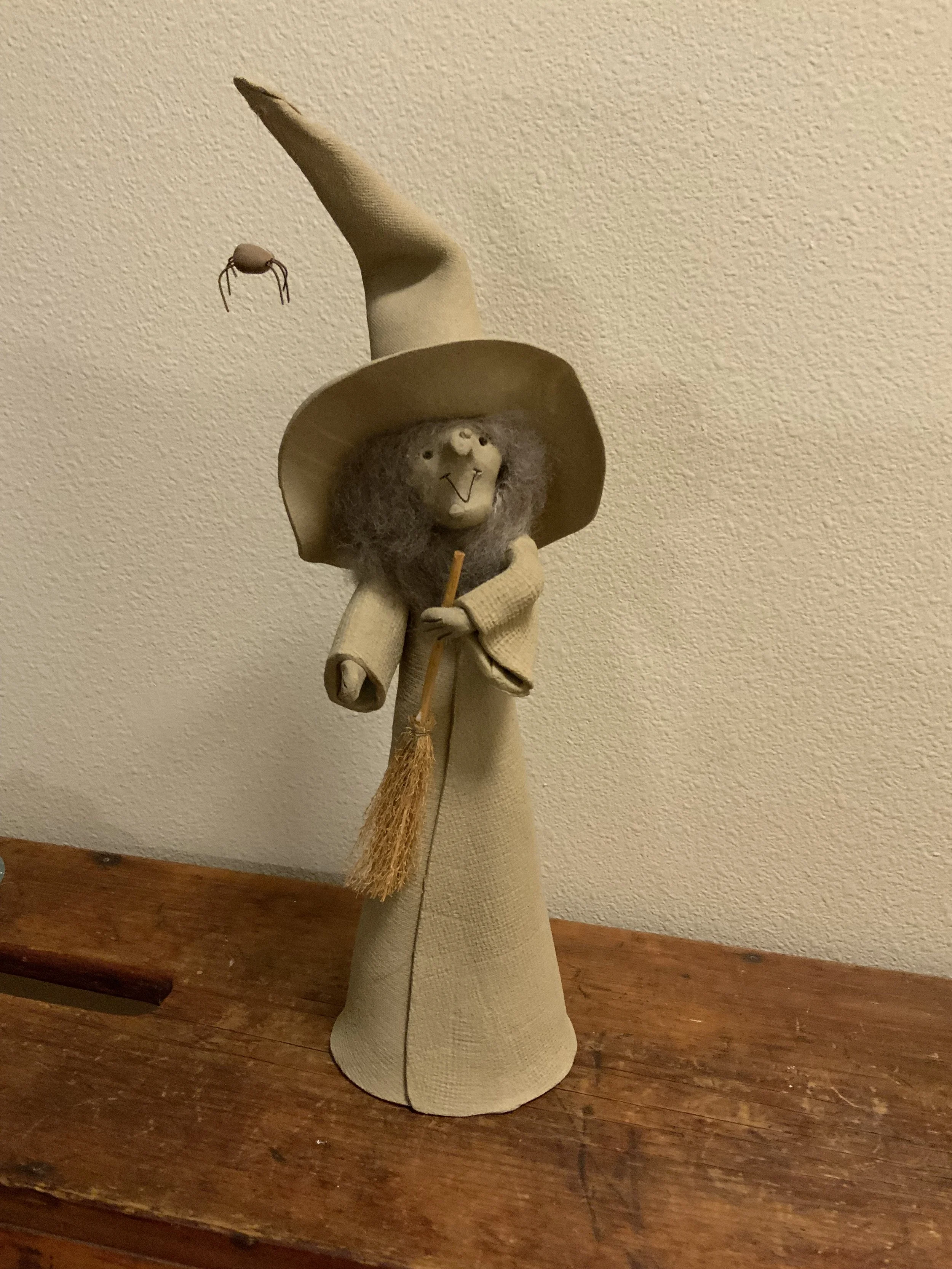#57 A WOMAN'S BRIEFS -- A WORD "WITH"
This won’t take long, this post about the word, “WITH.” It’s just that yesterday it got stuck between the tip of my tongue and the back of my upper front teeth. Try it. Say the word. It turns into a lisp trick on the word Wish. It’s play. I found myself saying, “I with to with upon a star . . .”
Say it again, and again, and see if you don’t have fun with how it spends time in your mouth, how it demands control of your breath, how it is a silly sound that we English speakers use over and over, and over again – without thinking about it.
It’s a simple thing, this little preposition, this English word that must always be “accompanied by” another word. As in with au Jus. It’s useless alone. Try making this four-letter combination work alone. Can’t.
You can find with hiding in such words as Withershins, wishing perhaps to be unaccompanied, like a teen being dropped off at high school by a parent. Withershins is an adverb that, in its original High German, alluded to some unfortunate or unlucky direction.
With can be combined with other words. Without is a preposition that still requires a noun or noun phrase, like “without mayonnaise.” But what about this—Without fail? We use that phrase all the time, we English speakers. Have you ever used the word fail as a noun? Like, Here, please have some of this nice Fail that I just roasted.
I promise to spare you too many paragraphs about this little word, and its usage. Just let me tell you that in my Random House Dictionary (I’m not ABOUT to open the Oxford English Dictionary!), there is a paragraph 3 ½ inches long, and twenty-one explanations deep about the word With. Never mind the combinations we have devised for it: within, without, withstand, withhold. You’ve got the idea.
In 1938, in his book, “Minimum Essentials of Our Mother Tongue.” an esteemed English teacher, John B. Wisely, said that many children in schools never complete eighth grade work, that of those who do, only about half enter high school; that only about 19% of those in high school will graduate, and of all of those only 37% will go on to college.
I haven’t read the whole book, but I do see that in his section on different kinds of words, he was concerned about “joining words.” Like, you know, “With.” If you read this one paragraph with me, you will know why I haven’t finished his book.
“So these relation or joining or connective words may all be divided into two classes: (1) COORDINATE RELATION WORDS, and (2) SUBORDINATE RELATION WORDS. Now the preposition is always a SUBORDINATE RELATION WORD because . . .” Surely, we get the idea.
Maybe not so much with words, but we do well at dividing people into classes. The rich, the poor, the tall, the short, the religious, the non-religious, the right, the left, the extrovert, the introvert, the weak, the strong. Here’s where I went yesterday with With. Put it in front of every one of those nouns, and do it. Be “with” this year. Without fail.
SCROLL DOWN TO LEAVE A COMMENT WITH BARB






